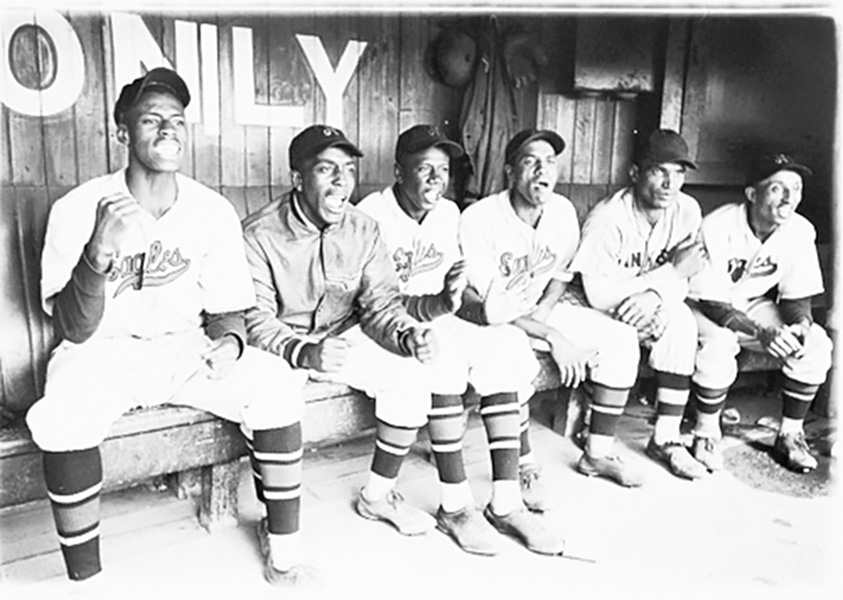Black Arts and Culture
Sam Pollard’s Documentary Shines Light On The Rich Legacy of The Negro Baseball Leagues
Filmmaker Sam Pollard’s latest documentary, “The League,” delves into the rich history of the Negro Baseball Leagues, showcasing the challenges faced by Black players and their enduring significance in American sports.

By Stacy M. Brown
NNPA Newswire Senior National Correspondent
@StacyBrownMedia
On the Black Press of America’s “Let It Be Known” show, renowned filmmaker Sam Pollard took center stage in an exclusive interview about his new film that shines a spotlight on the fabled Negro Leagues.
Pollard’s latest documentary, “The League,” will make its world premiere at the Tribeca Festival before a theatrical release in July.
Based on the book “The Negro Baseball Leagues” by Bob Motley and Byron Motley, the film counts as another triumph for Pollard, whose past directorial works include the critically acclaimed “Mr. Soul!,” “Sammy Davis, Jr.: I’ve Got to Be Me,” and “MLK/FBI.”
The documentary also boasts Ahmir “Questlove” Thompson, the executive producer responsible for the Oscar-winning “Summer of Soul.”
The film illuminates that the sport was integrated in its earliest days, albeit with Black players forming only a minority of team members.
That changed in the late 1800s, as racist white players like Pop Anson of the Chicago White Stockings, who infamously refused to take the field with Black athletes, sparked a shift.
However, as Jim Crow laws engulfed the nation, Black players were banned from the game.
In 1920, Rube Foster, a trailblazing Black baseball pioneer who excelled as a pitcher, manager, and owner, founded the Negro National League.
Inspired by Frederick Douglass’ words, the league adopted the motto “We Are the Ship, All Else the Sea.”
Three years later, the Eastern Colored League emerged as a competitor, culminating in the inaugural Colored World Series in 1924.
Foster, hailed as the “father of Black baseball,” serves as one of the documentary’s most compelling subjects.
Noteworthy for pitching seven no-hitters and inventing the screwball, Foster even taught the pitch to white player Christy Mathewson of the New York Giants, who popularized it.
Tragically, Foster met a grim fate, succumbing to the effects of a gas leak in a hotel room.
He suffered from delusions and spent several years institutionalized in an asylum before passing away at 51 in 1930.
Although the Negro National League eventually succumbed to the economic pressures of the Great Depression, other leagues emerged, serving as a springboard for numerous Black players who would later achieve legendary status.
Several of these players, including Ernie Banks, Hank Aaron, Willie Mays, and Satchel Paige, would eventually join Major League Baseball (MLB).
The documentary features captivating archival interviews with these players and more.
The film poignantly chronicles the immense challenges faced by Black players as they traversed the country, often denied accommodation in hotels and meals in restaurants.
Additionally, the Negro Leagues provided a home for many talented Latino players from Cuba, the Dominican Republic, Puerto Rico, and other parts of Latin America.
Following World War II, with many Black service members having bravely fought for their country, pressure began mounting for the integration of MLB.
Notably, Paul Robeson became a prominent advocate for this cause. Despite years of resistance from MLB Commissioner Kenesaw Mountain Landis, who evoked comparisons to a character from “Birth of a Nation,” progress emerged.
Landis died in 1944, and three years later, Branch Rickey recruited Jackie Robinson as the first Black player to join the Brooklyn Dodgers. Robinson’s entry opened the door for other Black players such as Roy Campanella, Don Newcombe, and Jim Gilliam, all of whom had roots in the Negro leagues.
Effa Manley, a formidable businesswoman, also features prominently in the documentary.
Known as the “First Lady of Negro Baseball,” she co-owned the Newark Eagles and became the only woman inducted into the National Baseball Hall of Fame.
Manley fiercely advocated for fair compensation for Negro league teams when MLB began recruiting their players.
The integration of baseball eventually led to the decline of the Negro Leagues, which ceased operations by the late 1940s.
Through masterful use of vintage footage, interviews, oral histories, and contributions from modern-day historians and scholars, the documentary makes a case for the enduring significance of the Negro Baseball Leagues.






